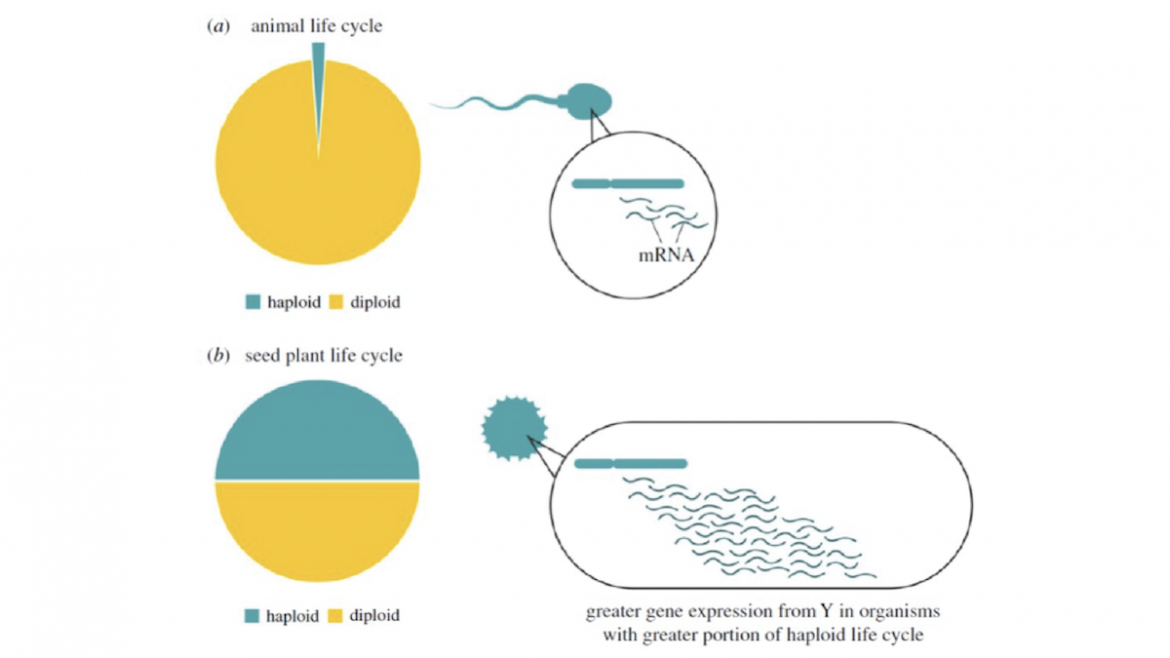
Abstract
Sex chromosomes in plants have often been contrasted with those in animals with the goal of identifying key differences that can be used to elucidate fundamental evolutionary properties. For example, the often homomorphic sex chromosomes in plants have been compared to the highly divergent systems in some animal model systems, such as birds, Drosophila and therian mammals, with many hypotheses offered to explain the apparent dissimilarities, including the younger age of plant sex chromosomes, the lesser prevalence of sexual dimorphism, or the greater extent of haploid selection. Furthermore, many plant sex chromosomes lack complete sex chromosome dosage compensation observed in some animals, including therian mammals, Drosophila, some poeciliids, and Anolis, and plant dosage compensation, where it exists, appears to be incomplete. Even the canonical theoretical models of sex chromosome formation differ somewhat between plants and animals. However, the highly divergent sex chromosomes observed in some animal groups are actually the exception, not the norm, and many animal clades are far more similar to plants in their sex chromosome patterns. This begs the question of how different are plant and animal sex chromosomes, and which of the many unique properties of plants would be expected to affect sex chromosome evolution differently than animals? In fact, plant and animal sex chromosomes exhibit more similarities than differences, and it is not at all clear that they differ in terms of sexual conflict, dosage compensation, or even degree of divergence. Overall, the largest difference between these two groups is the greater potential for haploid selection in plants compared to animals. This may act to accelerate the expansion of the non-recombining region at the same time that it maintains gene function within it.
This article is part of the theme issue ‘Sex determination and sex chromosome evolution in land plants’.